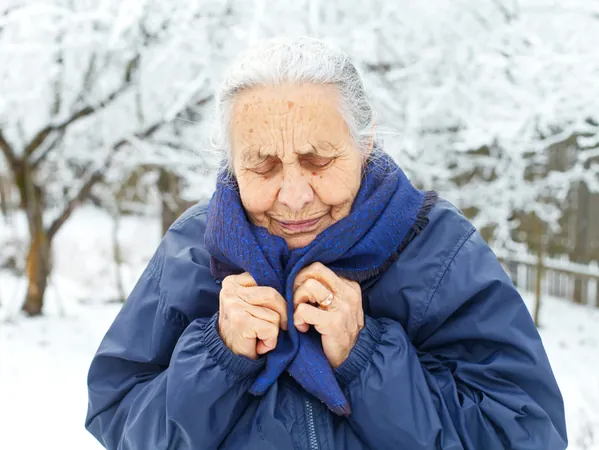
Essential Winter Survival Guide for Caring for Loved Ones with Dementia
2024-11-06
Author: Jacques
Essential Winter Survival Guide for Caring for Loved Ones with Dementia
As the crisp air of winter settles in and the days grow shorter, those living with dementia face a unique set of challenges. Caring for someone with dementia requires not just compassion, but also proactive strategies to ensure their safety and well-being during the colder months. Sierra Dueck, the South Eastman Regional Coordinator for the Alzheimer Society of Manitoba, shares invaluable insights on how families and caregivers can effectively support their loved ones during this season.
Dress for Success: Keeping Warm is Crucial
One of the primary concerns as temperatures drop is ensuring that individuals with dementia are dressed appropriately. "Dementia can impair judgment, which might lead to neglecting proper attire for the cold," Dueck says. To tackle this, caregivers should gently remind them to wear layers, including coats, boots, gloves, and hats. A simple comment like, “It’s quite chilly today; let’s get you bundled up!” can prompt necessary changes without seeming overbearing.
If you ever spot someone with dementia outside dressed inadequately for the weather, offer your help. Ask them, “Are you aware of how cold it is out here?” or “Do you need assistance with your coat?” These small nudges can have a significant impact.
Layer Up for Safety
Layering is key during winter, as it allows for easy adjustments based on comfort and activity levels. Plus, if your loved one has a tendency to wander or get lost, bright clothing can be a lifesaver. "Bright jackets can make them easier to locate, especially in emergency situations," stresses Dueck, noting the importance of visibility in potentially confusing scenarios.
Navigate Winter Hazards
The winter season brings hidden dangers like ice and uneven surfaces that may go unnoticed by individuals with dementia. "Unfortunately, when cognitive functions decline, differentiating between soft and hard snow can be difficult," Dueck explains. To minimize fall risks, caregivers should encourage them to walk slowly and wear non-slip shoes with good traction.
Combatting the Winter Blues
The lack of natural light during winter can also take a toll on mental health, potentially increasing anxiety and confusion. "Encouraging physical activity is essential," says Dueck. Simple indoor exercises or even short walks can help stimulate both the mind and body.
Maximizing exposure to natural light can also uplift spirits, so keep those curtains open during daylight hours. For those unable to adjust their home setup, consider moving a favorite chair closer to a window to bask in the sunlight.
Establishing Consistency
Creating a consistent routine is vital in reducing moments of confusion for individuals with dementia. When introducing new activities or changes, do so gradually to help ease any potential anxiety. Additionally, keep an eye on hydration; the dry winter air and less intuitive thirst signals can lead to dehydration. “Encourage regular snacks and warm drinks, which also provide energy and warmth,” Dueck recommends.
Explore Community Resources
Don’t forget about the wealth of community programs available to support individuals with dementia. Programs like Minds in Motion, offered in places like Steinbach, promote exercise and socialization. "These sessions not only support physical health but also enhance cognitive function," says Dueck. Engaging in group activities at places like the Pat Porter Active Living Centre can foster connections and provide enjoyable experiences.
With these seasonal strategies in place, caregivers can better ensure the safety, comfort, and engagement of their loved ones throughout the winter months. Staying connected with community resources enriches the caregiving experience, offering a network of support during these challenging times. Let's champion winter wellness together—your loved one deserves it!









 Brasil (PT)
Brasil (PT)
 Canada (EN)
Canada (EN)
 Chile (ES)
Chile (ES)
 España (ES)
España (ES)
 France (FR)
France (FR)
 Hong Kong (EN)
Hong Kong (EN)
 Italia (IT)
Italia (IT)
 日本 (JA)
日本 (JA)
 Magyarország (HU)
Magyarország (HU)
 Norge (NO)
Norge (NO)
 Polska (PL)
Polska (PL)
 Schweiz (DE)
Schweiz (DE)
 Singapore (EN)
Singapore (EN)
 Sverige (SV)
Sverige (SV)
 Suomi (FI)
Suomi (FI)
 Türkiye (TR)
Türkiye (TR)